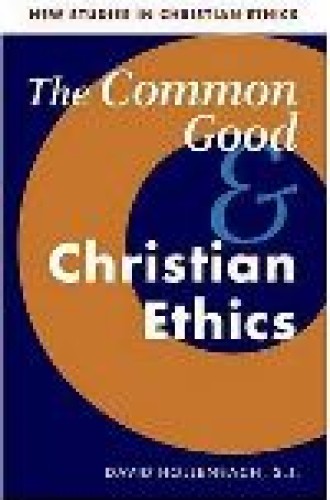Mind the gap
Pineapple, an eight-year-old growing up in the Mott Haven district of the South Bronx, wanted to become a pediatrician, she told Jonathan Kozol. She was among the Hispanic and African-American children Kozol came to know through the after-school program at St. Ann’s Episcopal Church when he was preparing to write Ordinary Resurrections in the late ’90s. Pineapple’s aspirations and potential far exceeded her opportunities to fulfill them. Unemployment in the South Bronx was at 45 percent; of the 1,900 to 2,000 children enrolled at Morris High School, only about 65 graduated each year; and, many of the children were afflicted with asthma, something Kozol associated with the neighborhood’s incinerators for discarded medical supplies. These circumstances prompted indignant protest from Mother Martha, the priest at St. Ann’s. Mother Martha, Kozol reported, “doesn’t simply say . . . that rich people ‘have advantages.’ She says, ‘They take advantages.’”
Kozol’s account of the human toll of poverty and inequality reflects an all-too-common reality in the U.S. and in the developing world. More than one in every ten Americans (11.7 percent) and an even higher number of children (16.3 percent) lived in poverty in 2001. The poverty line that year was $18,104 for a household of four. Many people estimate that the actual threshold for poverty is far higher than this income line used by the Census Bureau, and poverty is on the rise in the present recessionary economy. Poverty measurements that include illiteracy and premature death in addition to income make the prospect for Americans like Pineapple even grimmer. According to the poverty index of the United Nations Development Program (UNDP), the U.S. ranks last (17th) among all the developed nations for which measurements are available. Canada ranks 12th.
People just above the poverty line fare little better and are becoming increasingly worse off. Two of the books considered here cite data showing that the quintile of U.S. citizens with the highest income receives nearly 50 percent of all income, while the lowest quintile receives less than 4 percent. Income inequality has significantly increased since the early 1970s, and the changes are even more dramatic over the past three decades among the very highest income levels.
Paul Krugman, Princeton University economist and a columnist for the New York Times, says that the 13,000 U.S. taxpayers with the highest reported income received 3 percent of all income in 1998, 300 times that of average families. In 1970 a similar segment of taxpayers received 0.7 percent of all income, “only” 70 times the average family income. (According to Krugman, changing social norms, not economic productivity, explain these obscenely large incomes.)
Provisions for health care are just as unequal. In a nation that devotes nearly 14 percent of its GNP to health care, more than 40 million citizens (one-sixth of the population, most of whom are not officially impoverished) lack private or public health care insurance. No other industrial nation contributes more than 9 percent of its GNP to national health care, yet all have a universal and far more equal system of health care delivery.
The data on global poverty and inequality chill hope that economic growth alone will diminish poverty and benefit everyone. In its millennial report on poverty, the World Bank reveals that 24 percent of the population in developing nations live—or struggle to live—in absolute poverty, on less than one dollar a day. From one perspective, this is good news. The percentage of the world’s population in absolute poverty has diminished significantly during the past half century. Nevertheless, hopes that democracy, free markets and economic growth would substantially reduce poverty, as measured by income, have been frustrated by uneven progress. Nor do measurements of cognitive development and physical and mental health give reason for satisfaction. The UNDP calculates that 113 million of 680 million primary-school-age children were not enrolled in school in 1998. In 2000 1.1 billion people lacked access to safe water and 2.4 billion to sanitation services.
The data on global inequality are even bleaker. The 2002 report of the UNDP indicates that the 5 percent of the world’s population with the highest income receives 114 times the amount received by the 5 percent with the lowest. The inequality of income between countries for which we have data has increased since 1950. The adult literacy rate in Niger is 16 percent compared to over 90 percent in many Latin American nations.
Americans are only vaguely aware of these depressing statistics. We do not contemplate their significance for the well-being and fundamental dignity of millions of people. We are not embarrassed and indignant enough to scrutinize and alter policies responsible for such levels of poverty and inequality.
Fortunately, two books by Christian ethicists address the circumstances underlying these data. David Hollenbach, S.J., teaches at Boston College and was a principal contributor to the widely read—and even more widely publicized—1986 U.S. Catholic bishops’ letter on economic justice. Douglas Hicks, a Presbyterian clergyman, teaches at the Jepson School of Leadership Studies at the University of Richmond. Both books are part of a Cambridge University Press series in Christian ethics.
Hicks and Hollenbach offer painstaking accounts of poverty and inequality as issues of justice. They cannot be reduced to problems of individual and subcultural behavior and should not be viewed merely as potential threats to political and economic stability. Hicks and Hollenbach also demonstrate Christian theology’s distinctive contribution to moral and social-scientific discourse on poverty and inequality. Christians can agree with others about justice and the common good without compromising the integrity of their faith or their individual religious freedom. Moreover, Christian contributions to a public consensus about just policies are needed in order to meet the challenge of poverty and inequality.
In his notes for a 1916 lecture, Walter Rauschenbusch wrote that wherever significant economic inequalities exist, unearned (and unjust) gain may be assumed to exist. Rauschenbusch’s case against inequality was more than a moral assertion. It rested on empirical studies of the economic markets that uncovered special privileges for the rich. Hicks expands on Rauschenbusch’s method, offering highly sophisticated data gathered by economists to expose two aspects of inequality that indicate injustice even when there is equal opportunity in the labor market. Pineapple, for example, may be deprived of the capability for cognitive and physical development and of the identity needed to become a pediatrician even if no immediate barriers of racial or class prejudice impede her education. Hicks helps us recognize the significance of the unequal capabilities and of the gross inequalities that undermine identity.
Informed by the economics and moral philosophy of Nobel laureate Amartya Sen, Hicks demonstrates that inequalities of capability (in reading and writing, for example) may exist independently of income inequalities. His analyses focus on education and health. He shows that a nation may offer adequate provisions for education or health and yet distribute these resources unequally.
Even if there were no unfair barriers to opportunity for individuals or groups in the labor market, unequal capability could impede what Sen sometimes calls “effective freedom” or “real opportunities.” Sen and Hicks measure whether people are equally able to make choices about how they will function cognitively or physically. To make the point that grossly unequal capabilities are not always reflected by income inequalities, Sen observes that black males in Harlem, who receive many times the income of their counterparts in Bangladesh, are less likely to attain the age of 65 than are the men of Bangladesh.
Hicks employs theological, philosophical and empirical resources to show that gross inequalities, whether in income or capability, rob people of their identity, their selfhood, and consequently their dignity before God. He draws on H. Richard Niebuhr and Gustavo Gutiérrez to show how gross socioeconomic inequalities undermine the moral equality of people whom Christians affirm are all created in the image of God.
People are severely hindered in their development when inequalities marginalize their participation in social and cultural life. Pineapple and her classmates are likely to become literate, but they have little prospect of developing the skills to participate fully in American society. Moral equality and human dignity are context-dependent, Hicks argues. They depend on the relative equality of social goods in a particular society.
Hicks’s careful empirical and normative analyses help us to understand why equal opportunity in economic markets is not enough to ensure equal human dignity. A just society must have a relative equality of capability, not just of income. Hicks omits criteria for making normative judgments about what levels of inequality are just—normative criteria that Christian ethicists of an earlier generation called “middle axioms” between broad theological and moral principles and policy judgments. Inequalities of income or capability may not subvert human dignity as easily as Hicks supposes. But these quibbles do not detract from the importance of Hicks’s contribution. He shows why Christians should be indignant about increasing domestic and global inequalities, and his arguments are both distinctively Christian and accessible to non-Christians.
As his title suggests, Hollenbach argues that we need a new commitment to a reconstructed conception of the idea of the common good once prominent in Catholic moral theology. Liberal tolerance is not enough to overcome the isolation that perpetuates poverty. Hollenbach’s argument, like Hicks’s, rests on empirical and descriptive claims as well as on theological and philosophical ones. He relies on surveys and interviews that reveal the extent to which middle-class Americans deny the increasing interdependence between middle-class suburbanites and the urban poor, and between our nation and disadvantaged people in other parts of the world.
Neither the common good nor its place among the virtues is an eternal verity. The post-Reformation religious wars in Europe created circumstances in which respect for individual freedom needed to be accentuated. Today, empirical studies show that while Americans are more tolerant of religious and racial differences, they also believe that those being tolerated control their own well-being. Hence, many believe it their right to live in isolation from the problems of urban poverty.
But even our respect for individual freedom depends on mutual respect and a common commitment to institutions that preserve tolerance. Other spheres of our economic, cultural and political lives are also interdependent. Children like Pineapple depend on educational, public health and environmental policies developed by metropolitan and state governments. Inner-city poverty thrives on the isolation of suburban dwellers, an isolation that belies and ignores the extent to which the conditions for poverty result from policies developed in the suburbs. (Hollenbach’s arguments could also be applied to the poor scattered outside these inner-city neighborhoods. In It Takes a Nation, Rebecca Blank notes that only 12 percent of the U.S. poor live in inner-city neighborhoods with concentrated poverty.) Similarly, our respect for national sovereignty causes us to neglect the increasing global interdependence in the distribution of resources for human well-being.
Our changing domestic and global circumstances require solidarity, a commitment to institutions and policies that advance the common good of equal dignity and freedom for all, Hollenbach argues. Mere tolerance of the poor will not alleviate poverty. Justice demands solidarity, both in our political discourse and in our practical solutions. Our choice is not between freedom and suffocating community but between a “society based on reciprocal respect and solidarity and a society that leaves many people behind.”
Benjamin page and James Simmons, who teach political science at Northwestern University and the University of Wisconsin, Oshkosh, respectively, are not adverse to moral argument. Indeed, they trot out just about any moral argument that might persuade someone to embrace the policies they advocate. However, their book is most valuable for its extensive evaluation of U.S. government policies related to poverty and inequality.
They advocate government policies to augment the cognitive and health development of the poor as well as their political power. Unlike Hollenbach, they do not extend the effort to alleviate poverty beyond government to civic institutions. (Hollenbach and Hicks offer good reasons to be dubious of an approach limited to government policies unsupported by systematic moral arguments and changes in civic institutions.)
Page and Simmons helpfully explicate how all aspects of government, even the necessary laws of commerce countenanced by libertarians, shape economic markets in ways that benefit or burden the poorest citizens. Their most refined discussion is of policies consciously designed to correct defects in the market distribution of income, wealth and human capital. Their informative chapters on social insurance, tax policy, education, efforts to improve jobs and wages for less-skilled workers, and in-kind and cash assistance make clear why current policies are often regressive. (They cover health care in both the chapter on social insurance and the chapter on public assistance.) Page and Simmons advocate redistributive reforms in all of these areas. They note, for example, that tax credits for homeowners totaled $93 billion in 2000, while subsidies for those with inadequate housing reached only $29 billion and were insufficient to meet needs. They propose universal social insurance entitling all families to adequate housing. The full set of reforms Page and Simmons propose go well beyond income redistribution because income alone “will not inevitably maximize the well-being of all poor people.” In their remedies for inequality they heed Hicks’s insight that persons may suffer injustice in the distribution of capability as well as income.
Their proposals are expensive, an issue Page and Simmons address by considering economic productivity and the political obstacles to enacting their policies. They contend that many policies that advance equality will also enhance economic efficiency, and that we can afford to sacrifice some efficiency for the sake of equality. They also advocate extensive reforms to politically empower the poor and near-poor. Page and Simmons’s policies are largely compatible with Hicks’s and Hollenbach’s call for solidarity. However, the former two may be naïve to believe that political and economic reforms are feasible without changes in what Hollenbach, following political philosopher John Rawls, calls the “background culture” of political discourse and practice.
Rebecca blank and Ron Haskins’s volume sets an even narrower agenda. Its 19 articles evaluate various aspects of the Personal Responsibility and Work Opportunity Reconciliation Act (PRWORA) of 1996. The editors are social scientists with experience in Washington. Blank served on President Clinton’s Council of Economic Advisers and is dean of the Gerald R. Ford School of Public Policy at the University of Michigan. Haskins, a developmental psychologist, was the principal staff consultant for the House Republicans on welfare reform and is now a fellow at the Brookings Institution. The editors set out to demonstrate the value of social science in evaluating the successes and failures of PRWORA and to recommend revisions during reauthorization. This book does not invite cover-to-cover reading, but selected articles reveal a great deal about the interaction between the social sciences and ethics on antipoverty policy.
Despite their moral and political differences, the essayists agree that PRWORA policies must be judged on empirical evaluations of their success. Many of the authors have altered their policy judgments based on such evaluations. However, they disagree sharply on the outcomes by which public assistance programs should be evaluated. Haskins is unapologetic about his goal for PRWORA. Conservatives, he says, would have considered reform a success had it changed the source of income for the poor from government assistance to labor-market earnings, even with no accompanying increase in income.
The other essays exhibit an astounding, often incompatible array of outcomes by which the success or failure of PRWORA should be measured. These outcomes include reducing the welfare caseload; employing former welfare recipients; increasing incomes for the poor and near poor; improving the cognitive, physical and social development of children; reducing out-of-wedlock births; improving health care for low-income residents; and bolstering job stability and advancement.
The social sciences play a principal role in determining what variables promote specific outcomes; they cannot, by themselves, justify outcomes. They do not, for example, show us why reducing the welfare caseload without decreasing poverty and inequality is unjust. The unresolved questions about outcomes reveal the necessity for theological and ethical arguments.
The social scientists do, however, reveal a dimension of the moral problem of poverty that the other three books neglect. Liberal and conservative alike, they demonstrate why and how Americans with low-incomes and deficient capabilities can benefit from being held accountable for behavior that fits with receiving wider opportunities to participate in an interdependent society. Page and Simmons implicitly reject incorporating recipient accountability into antipoverty policy. A few left-of-center philosophers such as Amy Gutmann and Dennis Thompson (in Democracy and Disagreement) offer a moral defense of accountability for work in the labor market under specified conditions.
Some critics of this view understandably object to holding politically powerless people accountable for their behavior while the very rich are not subject to structures of accountability. However, if the vulgar incomes of the richest Americans result from relaxed social norms rather than from productive forces inherent in the market economy, as Krugman surmises, then social and political changes, such as those advocated by Hollenbach and Hicks, can extend the structure of accountability to these upper echelons of the income scale.
Taken together, these four books offer theological, ethical and empirical reasons to be indignant about persistent domestic and global poverty and inequality. Their empirical and policy analyses lead to morally prudent political and civic efforts to diminish these attacks on human dignity. Poverty and inequality are, as Hicks argues and Page and Simmons assume, interrelated. Moreover, the inequalities occur in multiple spheres: education, health and political participation as well as income. To address these dimensions of poverty, we need a solidarity in which all persons are accountable for a common good that advances the equal dignity and freedom of all citizens.







